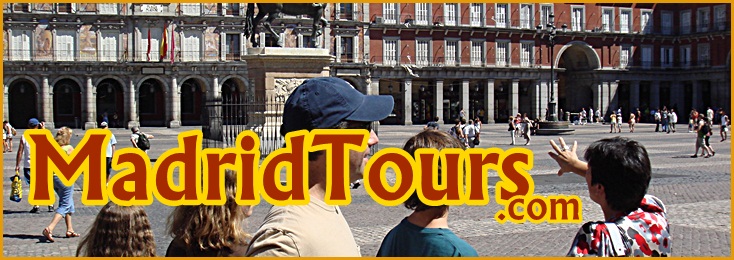|
|
#43355 - 04/12/01 11:31 AM
 Re: A question (translation) for the Spanish speakers.
Re: A question (translation) for the Spanish speakers.
|

Member
Registered: 07/05/00
Posts: 153
|
An important thing to bear in mind in the usage of venir: as far as I know, you cannot say venir unless you are physically present at the place you are referring to- venir and come are not identically used. Hence, you can ask someone on the phone who intends to visit you: ¿Cuándo vas a venir? -but the other person cannot answer: vengo mañana-since he or she is still at a different location.
|
|
Top
|
|
|
|
#43356 - 04/12/01 08:09 PM
 Re: A question (translation) for the Spanish speakers.
Re: A question (translation) for the Spanish speakers.
|

Executive Member
Registered: 01/29/01
Posts: 332
Loc: Danville, CA USA
|
It's the "ago" part that I'm having trouble with. If I want to say "I read it ten years ago," do I say "Hace diez anos que lo leo (or lei)?" Or "I saw her five years ago"--Hace cinco anos que la veo (or la vi). Do I use present or preterite tense and do I begin with the "hace" part?
|
|
Top
|
|
|
|
#43357 - 04/12/01 08:35 PM
 Re: A question (translation) for the Spanish speakers.
Re: A question (translation) for the Spanish speakers.
|

Member
Registered: 02/17/01
Posts: 332
Loc: Madrid
|
Both possibilites are correct but meaning is different though.
Hace diez años que lo leo - I've had the habitude of reading "it" for the last ten years.
Hece diez años que lo leí - Ten years ago I read it once.
|
|
Top
|
|
|
|
#43358 - 04/12/01 08:39 PM
 Re: A question (translation) for the Spanish speakers.
Re: A question (translation) for the Spanish speakers.
|

Junior Member
Registered: 03/31/01
Posts: 32
Loc: Minot, ND, USA
|
To my ear to say something happened a certain time ago you need the preterite verb. The same expression with a present tense verb would indicate the activity began a certain time ago and continues.
Hace 3 anos que estudio espanol.
I have studied Spanish for 3years.
Hace 3 anos que comence la clase de espanol.
Three years ago I began Spanish class.
|
|
Top
|
|
|
|
#43359 - 04/13/01 03:58 PM
 Re: A question (translation) for the Spanish speakers.
Re: A question (translation) for the Spanish speakers.
|

Member
Registered: 12/16/00
Posts: 233
Loc: New Jersey, USA
|
Hey connie, thanks for the tip on usage of venir. I observed that there was something different between our come/ go and venir/ ir, since if the phone was for my Spanish sister she would say "Voy!" not "Vengo!" But I never made the connection to it having to do with where the speaker actually is. Cool.
|
|
Top
|
|
|
|
#43360 - 04/14/01 06:20 AM
 Re: A question (translation) for the Spanish speakers.
Re: A question (translation) for the Spanish speakers.
|

Member
Registered: 02/04/01
Posts: 80
Loc: Riverside, California, USA
|
to key the ñ you have to press ALT + 164
I am seeing that some persons are using n instead of ñ.
the word "año" means year
the word "ano" means anus
Rafael
|
|
Top
|
|
|
|
#43362 - 04/14/01 02:05 PM
 Re: A question (translation) for the Spanish speakers.
Re: A question (translation) for the Spanish speakers.
|

Member
Registered: 02/18/01
Posts: 170
|
jajajajaj ¡pobrecita, Soledad! Quiero recomendar un diccionario: www.vox.es Saludos de tiajohanna
|
|
Top
|
|
|
|
#43363 - 04/14/01 11:14 PM
 Re: A question (translation) for the Spanish speakers.
Re: A question (translation) for the Spanish speakers.
|

Executive Member
Registered: 01/29/01
Posts: 332
Loc: Danville, CA USA
|
Sorry, I don't know how to make the "enye" on the computer. Como se hace?
|
|
Top
|
|
|
|
#43364 - 04/20/01 09:35 AM
 Re: A question (translation) for the Spanish speakers.
Re: A question (translation) for the Spanish speakers.
|

Member
Registered: 05/10/00
Posts: 71
Loc: Nerja, Málaga, Spain
|
To type the ñ character on a non-Spanish keyboard, first make sure the number pad is set to numbers (i.e. switch on Number Lock). Then press the ALT key and hold it down, while keying in the number 164. (Trying to use the numbers along the top of the keyboard will not work.)
This produces the lower-case ñ. For the upper-case Ñ, type ALT+165.
Any character not on your keyboard can be accessed this way if you know its 3-number "code". For example, I'm from the UK and here in Spain, to type the British symbol for the pound (£) on my Spanish keyboard, I have to type ALT+156.
Hope this helps!
dave
|
|
Top
|
|
|
|
|
|
0 registered (),
2396
Guests and
4
Spiders online. |
|
Key:
Admin,
Global Mod,
Mod
|
|
|





